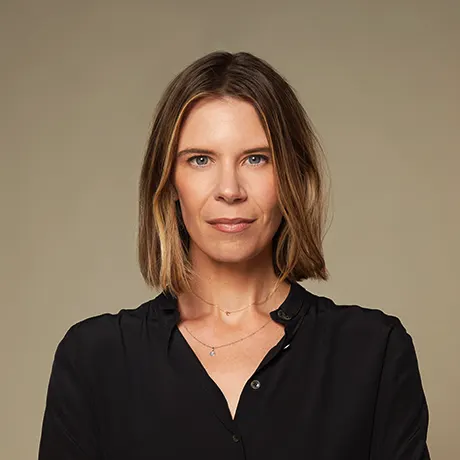Stay in the know
All our latest podcasts delivered right to your inbox.
Peach Perkins (they/them) is a recovering alcoholic and addict who has ADHD. The first time Peach got sober, they figured that being sober would “fix” their trouble performing at work. But when Peach continued to struggle with focus, they decided to get evaluated for ADHD. The path to ADHD diagnosis wasn’t easy. Peach feared that doctors thought they were drug-seeking and wondered, “How can I explain to you how debilitating this is?”
Also in this episode: ADHD and oversharing, and being “the life of the party” to cope with ADHD-related difficulties.
Related resources
Episode transcript
Peach: So, yeah, I got sober for the first time in April 2019, and I was doing the steps and living a sober lifestyle. And still I would get to the office and sit there and kind of just be a zombie for two to three hours, and sometimes all day. So, once I stopped using, I was able to see like, OK, this is just a problem that exists that I can't fix on my own.
Laura: From the Understood Podcast Network, this is "ADHD Aha!" — a podcast where people share the moment when it finally clicked that they or someone they know has ADHD. My name is Laura Key. I'm the editorial director here at Understood. And as someone who's had my own ADHD "aha" moment, I'll be your host.
I'm here today with Peach Perkins. Peach is a writer and a recovering alcoholic and addict who lives in New York. Thanks so much for being here today, Peach.
Peach: Thank you for having me. This is so exciting.
Laura: I wanted to say right off the bat, in addition to talking about ADHD and your "aha" moment, that throughout this interview, we'll probably be talking about substance abuse and your journey getting sober. And I want to be really honest with you and say that I don't have a lot of experience with conversations like those. So I just wanted to ask for the sake of this interview and also for our listeners listening at home, is there any terminology that makes you feel uncomfortable? Anything that you want to recommend that I avoid saying? Or the opposite: things that you like people to say when they're talking about sobriety with you?
Peach: Yeah. I mean, I am in a 12-step program, so I don't have a problem saying like I'm an addict, alcoholic. But I know people get sober a number of different ways. And some people don't like to identify as that, or it's not helpful for them. But like, I don't think there's anything you could say that would offend me in terms of sobriety.
Laura: OK. I appreciate that. Thank you.
Peach: Sure, yeah.
Laura: When did you realize that you had ADHD?
Peach: I went to NYU, and I had come from like a small town in rural upstate New York. And then going to NYU with a class of like a hundred people, you know, you couldn't really talk to the professor. And I just felt, like, very overwhelmed. And I was like, oh, OK. I guess this is just college. Everyone feels this way. The procrastination, it was really tough. But again, I just wrote that off as "it's college."
And so when I started getting to work, when I was like 22, 23, 24, when I had an office job and I was sitting at a desk and I was like, "I'm not a morning person." I would go to bed at typically 3 a.m. and wake up at 11 is kind of like an OK time frame for me. But so I would get to work in Midtown at 9:30 and just be like, "Uhh," at my desk, just waiting for my brain to turn on.
Sometimes it just wouldn't the whole day. And so I'm drinking coffee. I'm in the breakroom, just like chugging, this, like, weird black coffee, like "Come on, girl." Just, oh, also just disclaimer, I go by mostly "they/them," but sometimes I refer to myself as "she," so, prefer "they/them," but sometimes I misgender myself, so it's all good.
Um, but, yeah, I was wearing, like, a little, like, pantsuit and was like going to Rockefeller Center. I'm like, "Come on girl, you can do this." And just never, ever clicking in and just always kind of wanting to do a side project. Or I started a comedic blog because I couldn't focus at work. That's kind of when I knew something was wrong, but I still didn't know it was ADHD.
Laura: Did you have any inkling growing up, or did others, that you might have ADHD?
Peach: Well, I had so much energy as a kid. And it wasn't the, like, pacing around the room energy like, "Oh, that boy has ADHD, 'cause he can't sit down and he's interrupting during class." But I had so much energy when I was doing theater in elementary school and middle school. I was just, like, doing these video projects and always creating something and always working on something like that at the expense of my schoolwork and kind of procrastinating, but still able to do pretty well because I was younger and everything was easier. But I definitely had problems with interrupting, talking out of turn, not paying attention during class, eating during class constantly. The teacher like threw out the bag of potato chips in front of me when I was in sixth grade, and I was, like, "No! Why would you do that?" But just, like, I always needed to be stimulated, but nobody ever mentioned it.
Laura: Did they ever use other adjectives to describe you that weren't related to ADHD as far as they knew?
Peach: Ditzy. No common sense. Teachers didn't say that, but in a joking way, like friends would. Hyper, energetic, always hungry. Weird. Yeah. I guess those were the things.
Laura: How did that affect your perception of yourself?
Peach: I mean, I was bullied in elementary school. I'm also queer. So, growing up, I don't know, I felt different. I felt like there was something different about me that I couldn't quite place. I remember asking my second-grade teacher, like, can a girl ever turn into a boy? And he was like, "No." And I was like, "OK, but." You know, now they would have different conversations around that, but it was like 1996 or 7. So that wasn't really a conversation at that point.
But, yeah, I always felt like there was something different about me, and I felt like I was always too much. It was like talking at the wrong time or too energetic, really wanting to be friends with people, just like a lot.
Laura: How did you cope with that feeling, either as a child or as a young adult?
Peach: I grew up in rural upstate New York, so I was, like, living in the woods with my mom. So I would just like sing in the trees or just be really like a weird little tree nymph person. But that, you know, and I would read a ton basically. I was always reading.
Laura: Ah, what kind of stuff did you like?
Peach: Like Encyclopedia Brown. I would always try to, like, figure out the things. My mom actually volunteered at the library, so I would have to go with her for, like, five hours while they had the library meetings every week. And I'd be in the kids section', just reading. Oh, I found, like, Woody Allen's, like, book, like "Everything You Always Wanted to Know About Sex But Were Too Afraid to Ask."
I would go in the back of the stacks and be, like, reading these trying to learn just about life. I tried to read "Anna Karenina." I was like trying to read things that were above my reading level and then kind of didn't do it.
Laura: Wow. That is a wide swath, from Encyclopedia Brown to Woody Allen's sex to "Anna Karenina." Really covered it all there.
Peach: Yeah.
Laura: So if I'm hearing you right, it sounds like you're very comfortable being alone, probably, being with yourself, right? What about your relationships with other people? What are they like?
Peach: I get overwhelmed in groups of people historically. I know how to act one-on-one. I feel like I can kind of listen and give feedback and concentrate. But when there are groups of people, in the past, I felt like I need to perform or be kind of like, "Come on, keep the mood up." I feel like I'm always supposed to like entertain people in some way. I'm not sure if that's ADHD related, but I just was always kind of stressed out and overwhelmed in group situations. I never really want to do that. I always thrive in one-on-one situations.
I've always had, like, good close friends, like, people who can come over and take a nap. You don't have to do anything special? I love those friendships, like sleepover friendships. But, uh, I was always very, like, boy-crazy slash having a bunch of crushes, hyperfocusing on these crushes, which now I can recognize is ADHD. I'd tell my mom and dad, like, "This is the one, this is the one, this is the one" like nine times a year. And they were like, "OK, cool," to their credit.
Laura: I want to hear more about being, I think the phrase you used was "too much," and the performative aspect and trying to be, like, the life of the party. You were saying, "I'm not sure if this is related to ADHD." I think that it can be, at least from what I've heard from other folks in our community. We hear a lot about kids or adults with ADHD. Sometimes if they're self-aware enough, and it sounds like you were, to know that you're struggling with kind of the social rules of like not interrupting and paying attention. Sometimes you can, you can use that kind of performance or the clowning around to be a distraction and kind of save yourself in a way.
Peach: Totally. Yeah, I think when I was a kid and I would try to be funny as a coping mechanism, and when I'd get a lot of attention, I was like, "All right, things are going great. Keep it up, come on, come on, come on, keep the energy up," you know. And I talked to my therapist about it. She's like, "You really don't need to do that. You can just like show up as yourself." Yeah, it's just unlearning that you don't always have to be on with me. It's kind of on or off. There's never a neutral. It's kind of like I'm ready to engage and I'm like all in, or I'm like, I need to be alone because I can't do this right now.
Laura: Wow. That gave me goosebumps when you said unlearning how to be "on." That really resonated with me.
Peach: Did you feel like that when you were growing up?
Laura: Oh, all the time. I still do. It's only with people I'm really comfortable with that I feel like — I'm thinking of your sleepover friends, right? People who can just come over and take a nap. It's a lot for me to let down like that and not feel like I have to entertain.
Peach: Oh, my gosh. Totally. And, also, do you find, or I've found that I really try to make these deep connections so quickly. I'm just like, "Hey, here's everything about myself. Here's ever — tell me everything about you, and then, OK. I guess we're best friends now."
Laura: So, you know, I'm kind of making you do that right now. Sorry.
Peach: But I guess oversharing is a tendency of ADHD because I just say whatever's on my mind all the time to anyone in earshot. There's never a poker face. There's never a, like, "Maybe I shouldn't." And so I've learned, OK, don't trauma-bond with work colleagues, or like there's some situations in which not everyone needs to know everything about your inner life all the time.
Laura: Right. It might seem obvious, but it's actually, it can be a very tricky thing for people, especially people with ADHD.
Peach: Even when it comes to social media, like, I find myself acting like it's a LiveJournal, or I find myself just like, "Dear diary," on Instagram, like no one else can see my thoughts. And then someone will be like, "Oh, I saw that." And I was, like, "Oh," 'cause I feel like I'm putting it into the ether, and then I forget about it. And I forget that people are, like, absorbing that information.
Laura: Oh, that's so interesting. Yeah, I kind of was in that realm for a while, like, back in college. I was like, if I'm going to say one thing, I have to say everything.
Peach: Yeah, overexplaining?
Laura: Yeah. And I was always like that with even my written journaling as well. Writing everything down so I didn't forget it. Like, Post-it notes all over the wall kind of thing.
Peach: I think part of that is, like, wanting to be understood because so often we don't feel understood. So you feel like, "OK, I just have to give them the context. I have to give them how I came to this thing." You know, all this stuff, it's like, "Understand me, this isn't coming out of nowhere, you know?"
Laura: I totally hear you. I think my way of coping with that was that I just kind of shut it all down altogether. And I don't really journal anymore, which kind of makes me sad. I get so overwhelmed when I start that I feel like I'm just not going to do it at all.
Peach: Do you do the thing of buying the new journals and being like, "This is going to be different this time"?
Laura: Oh, Peach, I have so many empty journals I can't get — this is, today is the day. I'm going to write my opus today.
Peach: Yeah. I'm like, "He didn't text me back," and then it's like one page and then I never visited again.
Laura: It's a short story.
I'd love to talk about the process of getting evaluated and diagnosed with ADHD, because I think I remember you telling me that it was tricky.
Peach: Oh God. Yeah. My therapist said you have the thought and then it's a while between having the realization and taking action for people, even with ADHD, it's not — and also she has ADHD, which is really helpful, and I'm like, "Kristin, why didn't you tell me sooner?" but, you know.
Laura: Those therapists, they always make you come to the answer yourself.
Peach: Yeah, yeah.
Laura: So annoying.
Peach: "How do you feel about —"
Laura: I'm like, "No, just tell me!"
Peach: So I knew six years ago that I needed a diagnosis in order to get treatment. And when I went to my primary care, I think they treated it as if I was drug seeking because I was using at that time, like drinking and coke and whatever else.
So, kind of, my primary care is trying to refer me to a psychiatrist. Psychiatrist was trying to refer me to primary care, and it was that kind of loop and everything's expensive. So I was just like, all right, I'll just have a Five-Hour Energy every morning and Flaming-Hot Cheetos and try to bang out these, you know, press releases.
And then I was served an Instagram ad for this mental health startup. And it was kind of reasonable, and I got to meet with a psychiatrist. And I think even then they were not used to diagnosing female-bodied people as much, or kind of trying to downplay it or maybe think, like, is that really a hard thing?
And I'm, I don't know. I'm like, how can I explain to you how debilitating this is and has always been? It felt like such a fight every step of the way to get a diagnosis. But luckily they diagnosed me and I was like, "Great."
Laura: When was that?
Peach: That was February of 2020, right before the pandemic. And I was sober at that time. So I had gotten sober April 2019. And I was like, OK, that's the thing preventing me from doing a good job at work. Now I can really go all in. And I was still at work, just my eyes were crossed and I still couldn't do what I needed to do. That wasn't what was in my way.
Laura: I had something similar happen when I didn't know what was going on, but I knew that I had a lot of stuff going on. And I got diagnosed with anxiety and started taking anti-anxiety medication. Then I was like, this is helpful. I can feel that my anxiety is more under control. But wait, I still am having trouble with X, Y, and Z that were all related to ADHD symptoms. And then that started another conversation.
Peach: Totally, like time blindness. I was like, OK, I'm sober, so I shouldn't be late to things. And it's like, nope. Still late all the time. You know?
Laura: I hear you. Even if you are sober, you don't have ADHD, you're still allowed to be late sometimes. Like, it's OK.
Peach: Sure. Yeah. Yeah. But I was just like, why is my life like [circus music], just running around like. And I think most, like, female-bodied people who are diagnosed, you just feel this like overwhelming shame and guilt all the time. Like, you're not doing enough, you didn't do it right. Everyone's going to know that you didn't do it right. Everyone knows you're faking. Everyone knows all the stuff. Which no one really thinks, but you're just so used to like setting these goals, not achieving them. Setting these deadlines, missing them. Forgetting to pay the bill, forgetting to da-da-da. So I was just always feeling like I was [beep] up, and when I got sober, I was like, why am I still doing this? Because I thought this should help that. And that's really when I was like, OK, I need to really try to get a diagnosis.
Laura: I'm sorry that it was so arduous to get the support that you needed. It's tricky already. And this is by no means comparable, but even as recent as this week, I was having trouble getting my medication prescription because it's a controlled substance. And I had this panic that I was going to be denied this medication that helps me function on a daily basis. I was afraid that I was going to be considered drug seeking. I don't know. I thought of you. And I thought, "If this is even like a millimeter of what Peach experienced, that's just awful." You know, some studies have shown that people who have a history of substance abuse and also have ADHD, if they take ADHD medication, it can help reduce using substances in them.
Peach: Think I read that same report if it was like in a medical journal or something. I got down this ADHD research rabbit hole the other day, which is actually a healthy rabbit hole to go down. Before I was diagnosed and treated, I was definitely looking for something to help me. And sometimes those things weren't prescribed. And now that I have the diagnosis, I don't feel the need as much. Sobriety is kind of every day is different and different things trigger different things. But overall, I feel like I'm stable and know how my brain works and know what I need more, as a result of my diagnosis.
Laura: I would love to hear from you just in general, substance abuse and ADHD symptoms and like the interplay between the two of them. I guess it's kind of a chicken-and-egg question that I have, right? Like, would you drink to help with ADHD symptoms, or did ADHD symptoms in your mind increase cravings for a drink? I'm just curious, how does this interplay, how did you experience that?
Peach: The comorbidities anxiety, depression — I remember being a kid and feeling so like morose and just, like, desolate. And then I would feel like super social anxiety. And so I'm on an SSRI, but that still doesn't help with ADHD overwhelm, when too many things are happening at once and you just want to like guttural scream into the woods. In those moments in the past, I'd be like, let me have a glass of pinot grigio, 'cause that'll just mellow things out. But now, I do let out a scream under the low, like [groan], sometimes alone. So definitely, in moments of overwhelm I was using alcohol as kind of a sedative.
Laura: From what I know from our experts, I think that's pretty common to self-medicate when you have ADHD, even if you don't know you have ADHD. It's like the way you feel when you're using a substance is the way that you would hope you'd feel if you didn't have ADHD.
Peach: Totally. And then, like, if I was really in an isolated "I don't want to do anything" mood, then I would use an upper like cocaine or something to be like, "It's OK, I can still go out." So I was using the drugs kind of to, without knowing it, level out or medicate myself.
Laura: Right.
Peach: People who have ADHD are much more likely to abuse substances. And it's because of that, like, you're just chasing that dopamine and the short-term dopamine, and so when you have a dopamine deficit, you're like, "What's going to get me to the next, like, how do I? Come on? Where can I find it? Where can I find it?" That's why I love speeding in my car, which I shouldn't, and, like, gambling and, you know, all these, like, high-risk behaviors I still am drawn to. And when I'm doing a high-risk, something high-risk, I feel like, "Hmm, I can finally relax." As opposed to going through daily life just feeling a little bit like "ooh," like, in the back of your mind, you know?
Laura: Yes. Also the sounds you use are just incredible. And I want you to come over to my house and read my kids' children's books to them.
Peach: Oh my God. I do nanny. So yeah, hit me up.
Laura: I feel like you would be stellar at that. Are there feelings around ADHD medication in the sober community? Is there a hesitation around using them in general, or is it just a personal thing?
Peach: Yeah, I mean, I think the sober community is so heterogeneous. Did I say that right? Heterogeneous?
Laura: That's a tough one to pronounce.
Peach: Yeah. I think the sober community is so diverse. That's a great word. Yeah. Yeah. So, like, I can't speak for anyone else, but I think with medication that you need or for painkillers or whatever it may be, I think it's just like "use with caution, use with guidance."
Laura: I want to talk about how you are now. There've been a lot of changes in your life. You left your job, you quit your job.
Peach: I did, yeah.
Laura: And it sounds like it was a very conscious decision. Like a very thoughtful decision, as opposed to like an impulsive ADHD move. Which is cool.
Peach: Yeah. Yeah. I mean, I had a relationship with my boss for, like, I had worked with her for seven years off and on, and really appreciated my time there. I think just maybe time to move on. And I think also with the pandemic, when remote work became an option, it was just like such a boon for people who are neurodivergent because now you don't have to be like the square peg in the round hole. You can be like, "Yes, perfect. I can have my space." And I can be productive in the way that's helpful for me instead of trying to mask all day. And I'm exhausted when I come home, because I'm doing this face to the world and trying to go through the motions and not really being able to do what I need to do.
There are certain environments that are more conducive to ADHD. So it's like in, you know, traditional office structures, especially an open floor plan, which is trash, you can never just be by yourself. And everyone's like, "How's your weekend?" Oh my God. So now I'm still in the job search process. I'm looking for remote work, but I'm doing like a lot of nonprofit work or like writing research papers. And that's been really cool to use my hyperfocus for good. Yeah. More kind of creative endeavors and stuff.
Laura: I'm really happy to hear that the pandemic — for all the terrible things that have happened with the pandemic — that that has been a plus for you. 'Cause I know that being at home maybe, well, for all kinds of people, even for some people with ADHD, being at home has been really tough. So I guess it just depends on how you present, right?
Peach: Right. I guess that's also because I don't have kids; that's different than other, yeah.
Laura: Well, that's a whole different thing besides ADHD, but I appreciate your thinking about that.
Peach: Yeah. But no. Yeah. I just have these dogs and I'm even like with them.
Laura: For me, it's just like my husband, like, he'll come downstairs when he's like taking a break and I'll be in the middle of something and he'll be, like, he'll start talking to me. I'm like, "Do not interrupt me. I will never get back to it."
Peach: Like, well, because you work in an environment that's really understanding of neurodivergence, like, how has that been helpful for you in your life holistically?
Laura: Oh, what a great question. Thanks for asking. I mean, it's been a game changer. I've been at Understood for a long time, and I got diagnosed with ADHD while I was working at Understood. And even during that time, I never talked about it. I didn't share. And that had nothing to do with the people around me or the organization. It's not like they wanted that from me. But little by little and hearing stories and learning more about accessibility and different ways of working, right, and thinking. Little by little, I've started to be more and more open about my ADHD. And now I'm on a podcast — ta-da! I'm talking more about it than I ever thought I would. So it's been clutch in terms of openness and acceptance of myself.
Peach, it has been so great to talk to you. This has been a lot of fun, and I feel like I've learned a lot, and I think your story is really beautiful. And I appreciate you coming on.
Peach: Thank you so much. I really appreciate you asking me. And this was so fun. I feel like I still have 1 million questions, but I'll just follow up in every email.
Laura: If you or someone you know is impacted by substance abuse and need support, you can find resources at the Substance Abuse and Mental Health Services Administration, or SAMHSA. Go to samhsa.gov, that's S A M H S A dot gov, or call 1-800-662-HELP.
You've been listening to "ADHD Aha!" from the Understood Podcast Network. You can listen and subscribe to "ADHD Aha!" on Apple, Spotify, or anywhere you get your podcasts. And if you like what you heard today, tell someone about the show. We rely on listeners like you to reach and support more people. And if you want to share your own "aha" moment, email us at ADHDAha@understood.org. I'd love to hear from you. You can go to u.org/ADHDAha to find details on each episode and related resources. That's the letter U, as in Understood, dot O R G slash ADHDAha. Understood is a nonprofit and social impact organization. We have no affiliation with pharmaceutical companies. Learn more at understood.org/mission. "ADHD Aha!" is produced by Jessamine Molli. Say hi, Jessamine.
Jessamine: Hi, everyone.
Laura: Justin D. Wright created our music. Seth Melnick and Briana Berry are our production directors. Scott Cocchiere is our creative director. And I'm your host, Laura Key, editorial director at Understood. Thanks so much for listening.
Host
Latest episodes
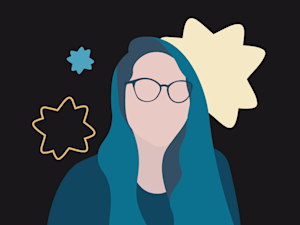
April 16, 2024
ADHD coach Jaye Lin was a gifted kid with undiagnosed ADHD. Now, she’s building communities and helping others cope with ADHD burnout.
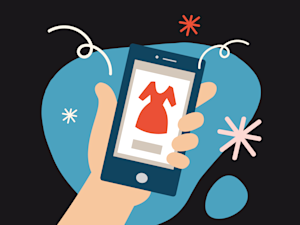
April 2, 2024
Writer Paulette Perhach had money coming in but struggled to keep it in her bank account. An ADHD diagnosis brought her struggles into perspective.
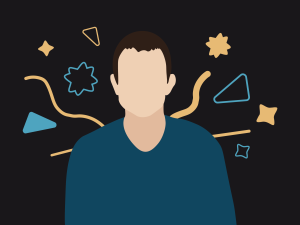
March 19, 2024
Eye to Eye founder David Flink is fighting the “just try harder” myth surrounding ADHD, dyslexia, and other learning and thinking differences.
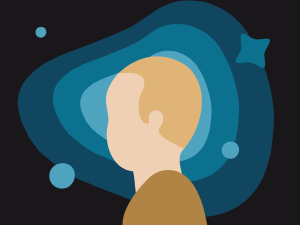
March 5, 2024
Peter Jones used to feel better saying he had a hearing problem rather than considering ADHD. Now, he knows he has ADHD and isn't afraid to say it.
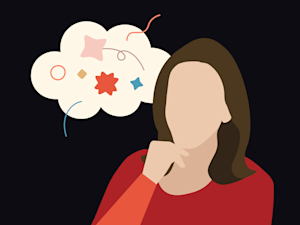
February 20, 2024
Before her ADHD diagnosis, ADHD coach Emily Weinberg thought she was just lazy. But in reality she was stuck in “analysis paralysis.”
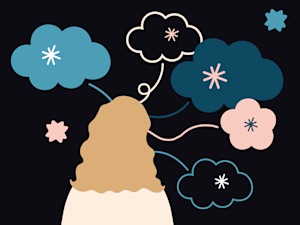
Carol Blumenstein was called an unteachable student. Now, she knows she has ADHD and dyslexia, and supports her five kids who learn differently, too.

January 23, 2024
Executive coach, actor, and former criminal defense attorney Ernest Anemone shares his ADHD story — and why he questions the term “attention deficit.”
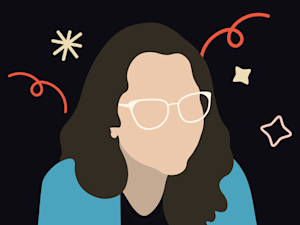
January 9, 2024
ADHD and post-traumatic stress disorder (PTSD) symptoms can look similar. And they can morph into what Hannah calls “a trauma ball of blame.”
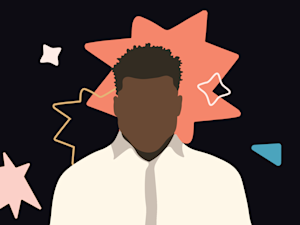
December 26, 2023
Livingston Steele was diagnosed with ADHD about a year into working at Understood.org. His experience and work have given him immense empathy for people with ADHD.
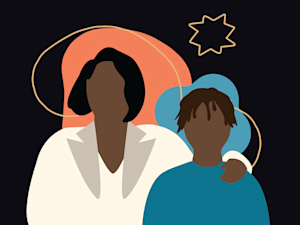
December 12, 2023
Wendy Zanders is a decluttering coach with ADHD. Find out how she got into organizing, and get a few tips for yourself.

